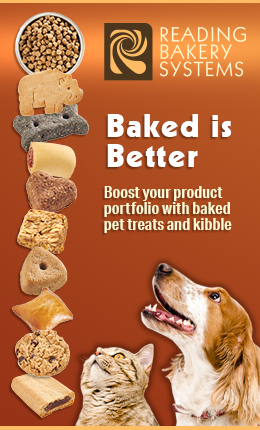Research support
If we talk about research, we must mention Champion Petfoods, a Canadian company that has shouldered the commitment to research to grow as an industry. This company has awarded a 5-year grant to Guelph University, a leading institution in veterinary medicine and animal science, intending to advance quickly and continuously in various pet food research. Together with other international research experts, the University, thanks to this grant, will be able to expand the fundamental knowledge of pet nutrition to different companies and organizations.
The faculty conducts research in nutrition, physiology, molecular biology, behavior, reproduction, genetics, and more. Combining industry experience and scientific knowledge guarantees high-quality studies and research with the correct orientation to offer the most appropriate solutions to the market.
Finally, what is remarkable about this event is not only the fact of advancing research that leads us towards a better industry but also the opportunity to train new students and leaders in the sector.
Lack of research means bigger gaps
The global pet food industry benefits from all market and academic research because shared knowledge creates expansion. Topics from veterinary medicine and animal nutrition to advertising and economics are essential when it comes to growing and improving the industry. However, lately, we have found that few researchers stop to assess whether the information flow they seek to provide will supply the knowledge that the industry needs to keep on evolving.
Lonnie Hobbs, a scientist who specialized in agricultural economics at Kansas State University, questioned this: Do academic studies and industry reports provide the insights leaders need to grow?
To answer the question, he designed a questionnaire to assess what industry leaders expect from scientific research among several companies of different sizes, a characteristic by which the companies were divided to identify the specific needs of small, medium, and large ones.
Conclusions
Some of the conclusions obtained based on the answers to the questionnaire are:
- Large companies as well as small ones with less than 100 employees prefer to research in the production area. However, the leaders of medium-sized companies consider research in raw materials as the most important research topic.
- Thus, some criteria interest all brands, regardless of their size. The ongoing conflicts and entanglements in supply chains are one of those: all companies would like to receive advances regarding raw materials and their sourcing to improve their operations. Many leaders consider there is a significant knowledge and research gap on this topic.
- Processing methods and technologies are other topics that companies of all sizes consider a priority in industry research.
- Another aspect they all demand of great importance when it comes to research for the sector is predicting consumers' tastes and preferences.
- The leaders also pointed to the search for new sustainable proteins as the challenge they consider the most complex to overcome throughout the next decade.
- Finally, we can highlight that all the leaders, regardless of what their company dedicates to or the current size, have highlighted the need to carry out research that obtains answers from real market consumers. That way it is possible to know more about the current client of the pet food industry. The differences in perspective arise in the how: while small-scale companies consider consumer surveys and trend summaries a great option, medium-sized companies prefer to focus on customer complaints. For their part, large-scale companies highlight the use of external resources and internal customer feedback as the most significant information gaps.
A key factor: humanization
The participants overwhelmingly identified the humanization of pet food as one of the top trends driving the industry, suggesting that more research on the various ramifications of this trend is needed to guide market decisions.
It seems like a paradox but effectively, defining how and what to investigate results in great exploitation of time and money investments to find advances or points of improvement and innovation in the industry. Conversations with sector leaders result in identifying not only its importance to find funding and research spaces but also to identify the specific topics that pet food leaders need to know more about. The reason is quite simple: they are the ones who can best guide researchers on where to place their efforts, produce the most relevant results for the industry, and, at the same time, attract more funds for future research.
Undoubtedly, the collaboration between parties guarantees us all to provide the necessary resources for quality research for the benefit of the industry and, above all, of pets.
You could be interested: The Conscious Nutrition Era, or With Science Era, Now in Dogs and Cats
About author
María Candelaria CarbajoI’m a creative, interdisciplinary person, translator, and editor. I collaborate in producing and writing creative, high-impact projects to promote cultural exchange, transmit differential values, and connect with people/the audience. Likewise, I enjoy teamwork and joining forces, experiences, and knowledge to bring the world all the potential of those ideas that seek to impact people’s lives positively.

































